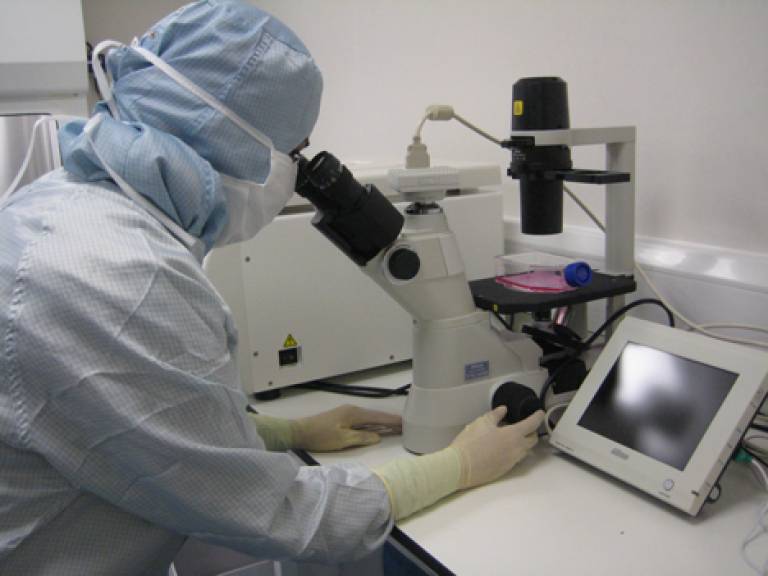UCLB patented technology used to develop a potential new treatment for Corneal Surface Disease
25 April 2012

Researchers at UCL have made a significant advance towards developing a treatment for Corneal Surface Disease, using RAFTTM; a UCLB patented technology licensed to Tap Biosystems.
The development was led by Professor Robert Brown at UCL's Tissue Repair and Engineering Centre (TREC) and Professor Julie Daniels at the UCL's Institute of Ophthalmology, in collaboration with TAP Biosystems and funding from the Technology Strategy Board.
Professor Daniels used an innovative method of synthetic tissue production, known as RAFTTM, which uses collagen to create corneal tissue; closely mimicking that of actual human cornea. It has the potential to significantly improve the success rates of cornea repair surgery and will allow people with corneal surface disease to have replacements without waiting for eye donors.
The patented RAFTTM technology has previously been used to create a wide range of different artificial human tissues. This is the first time it has successfully been used to mimic that of human cornea tissue.
"This project has advanced our understanding of what is required to engineer a tissue in the laboratory for patient transplantation," explains Julie Daniels, Professor of Regenerative Medicine and Cellular Therapy at the Institute of Ophthalmology. "It's exciting because it provides a real prospect for treating patients with blinding corneal surface disease, using a stem cell populated tissue equivalent that is simply, quickly and reproducibly prepared."
Dr Rachel Hemsley, Senior
Business Manager at UCLB said "This project is an exciting contribution
of disciplines bringing together regenerative medicine and tissue
engineering with the aim of meeting a key medical need of restoring
sight to patients. This advance has arisen through the long standing
relationship between IoO at UCL, UCLB and Tap Biosystems".
About UCLB
UCLB
is a leading technology transfer company that supports and
commercialises research and innovations arising from UCL, one of the
UK's top research-led universities.
UCLB has a successful track record and a strong reputation for identifying and protecting promising new technologies and innovations from UCL academics. It invests directly in development projects to maximise the potential of the research and manages the commercialisation process of technologies from the laboratory to market.
UCLB supports UCL's Grand Challenges of increasing UCL's positive impact on and contribution to Global Health, Sustainable Cities, Intercultural Interaction and Human Wellbeing.
For further information, please visit www.uclb.com
About Tap Biosytems
TAP
Biosystems (formerly The Automation Partnership) provides advanced
automation systems and services to improve productivity in life science
research, development and production.
For further information, please visit www.tapbiosytems.com
Published 14 February 2012 on UCL Enterprise
 Close
Close

